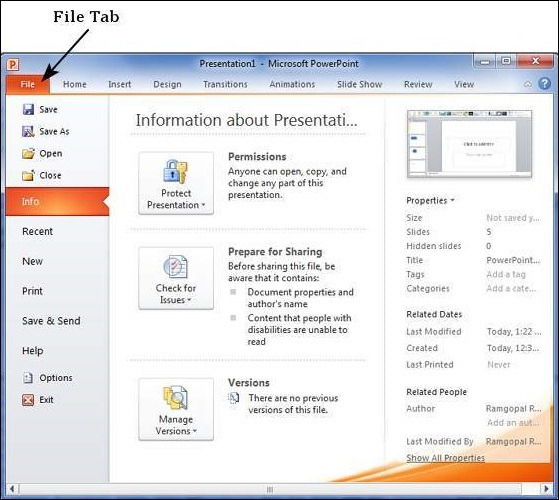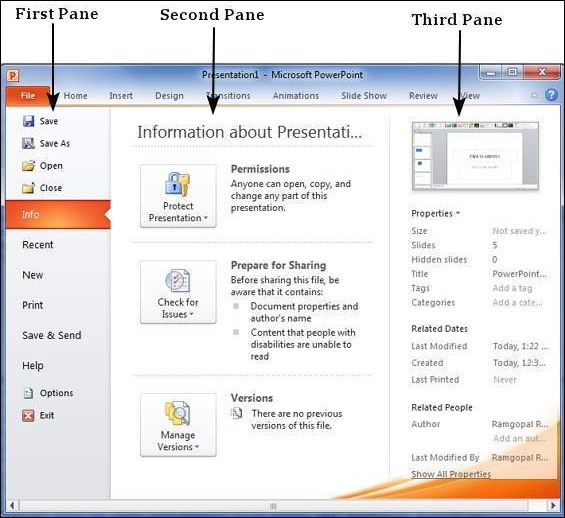In Office 2010, Microsoft replaced the traditional file menu with the new Backstage view. This view not only offers all the menu items under the file menu, but additional details which makes management of your files a lot easier.
Accessing Backstage View
You can access the Backstage view simply by clicking on the File tab. You can exit this view by clicking on any tab (including the File tab again). You can also press the ‘Esc‘ button on the keyboard.

Organization of Backstage View
The backstage view has three sections or panes.

-
First Pane − This is the commands pane which consists of all the commands you would typically find in the file menu of older versions. You also have the Options menu which lets you edit the options on the program like customizing the ribbon.
Various commands under the first pane are described in the table below −
| S.No | Command & Description |
|---|---|
| 1 |
Save This allows you to save a new file or an existing file in standard format. If you are working on a previously saved file this will save the new changes in the same file format. If you are working on a new file, this command would be similar to the Save As command. |
| 2 |
Save As Allows you to specify the file name and the file type before saving the file. |
| 3 |
Open Allows you to open new PowerPoint files. |
| 4 |
Close Allows you to close an existing file. |
| 5 |
Info Displays the information about the current file. |
| 6 |
Recent Lists series of recently viewed or edited PowerPoint files. |
| 7 |
New Allows you to create a new file using blank or pre-defined templates. |
| 8 |
Allows you to select the printer settings and print the presentation. |
| 9 |
Save & Send Allows you to share your presentation with larger audience via emails, web, cloud services, etc. |
| 10 |
Help Provides access to PowerPoint Help. |
| 11 |
Options Allows you to set various options related to PowerPoint program. |
| 12 |
Exit Closes the presentation and exits the program. |
-
Second Pane − This is the subcommands pane. This will list all the commands related to the main command you choose in the first pane. For example, if you select Print in the first pane, you get to choose the printer and adjust the print settings in the second pane.
-
Third Pane − This is the preview or file information page. Depending on the command and the subcommand you select, this pane will either display the properties of the file or give you a preview of the file.




